Reviews
Clint Eastwood
USA, 1976
Credits
Review by Michael Nordine
Posted on 07 May 2011
Source 35mm print
Categories TCM Classic Film Festival 2011
Josey Wales may be a gunslinger, but an outlaw he is not. Beyond the scars, grimaces, and raspy laconicism that typify the archetypal Clint Eastwood character lies a sensitivity that’s been more or less on the nose as of late. But this sensitivity is hidden beneath layers of nuance and understatement in The Outlaw Josey Wales, a film that, if not quite the clearest expression of the grim-but-optimistic worldview Eastwood has spent decades cultivating, is one of his most fascinatingly conveyed. Of its title character one man offers the following:
Not a hard man to track. Leaves dead men wherever he goes.
Why, then, does Josey not qualify as an outlaw? Eastwood makes it plain that there are different methods of justice, and those meted out by the corrupt military officers who pursue him only hold so much water. The only true law in the war-ravaged land Josey traverses is what the last man standing says it is. What’s right and moral to him doesn’t come from without (and certainly not from the government that considers him an enemy); it’s an intuition, a gut feeling that, once felt, doesn’t go ignored. Josey does right by himself and the memory of his nameless wife and child, not to mention those who come to depend on him later. His deeds (both good and bad) aren’t the stuff of legend so much as necessities of daily life for a man who drifts from place to place, gunfight to gunfight.
Time and again Josey comes out on the better end of these gunfights. But with each body left behind, he further removes himself from those around him. This is unsurprising; nearly everyone he knows is dead or dying. Josey’s wife and child are murdered at the hands of dastardly Union soldiers in the film’s opening scene, and each of his subsequent traveling partners rides with him fully aware that they may meet a similar end. Certainly this is endemic to the post-Civil War climate into which they’ve been thrust, but one gets the sense that Josey’s company exacerbates the problem. Given that death (whether it be brought about by his hand or another’s) follows him everywhere he goes, it’s not hard to see why Eastwood’s perpetual wanderer is solitary even in the company of the small group of men and women who eventually become something of a family to him. Josey’s scowls and jeers don’t arise from innate callousness; they’re a defense mechanism engendered by years of hardship, loss, and unspoken sorrow. These troubles show themselves most explicitly via a scar extending the length of his face (he’s not the only one so marked) but materialize in other, subtler ways as well. Josey’s ability to express himself in words rather than bullets and spit is stunted, a flaw it takes him the duration of the film to overcome.
At one point, a nearly-dead traveling companion to whom Josey has reluctantly grown close relates to Josey an intimate memory involving the man’s father. He’s feverish, weak, and aware that the words he now speaks are likely to be his last. Before Josey has a chance to respond, the long barrels of two different guns are inches away from his face. Given the frequency with which such events transpire, it’s unsurprising that Josey rarely bothers verbalizing his feelings to those around him—what’s the point when his confidants will soon exit this world? As with the following, a eulogy for that same man, Josey’s most in-depth speeches tend to be reserved for the wind:
This boy was brought up in a time of blood and dying and never questioned a bit of it. He never turned his back on his folks or his kind. I rode with him… and I got no complaints.
Death is omnipresent in the film; not even remembrances of the dead go uninterrupted by impromptu skirmishes that add to the ever-growing body count. The men who hunt Josey - and whom he hunts in return - are given a one - dimensional depiction as barbarous murderers without whom the world will be a better place. “I’ve got nothin better to do,” Josey responds when asked why he seeks them out, but one suspects otherwise: making the leap from Josey’s anti-Union (and thus anti-government) sentiment to Confederate sympathizing is no great task, especially considering it’s the avowed stance of the men with whom he initially rides.
These leanings, though played down for obvious reasons, are no accident: The Outlaw Josey Wales was adapted from the novel Gone to Texas by Forrest Carter, real name Asa Carter, a former radio host from Alabama and avowed supporter of the Ku Klux Klan who successfully hid his identity from his readers for years on more than one occasion. One would be hard-pressed to find traces of substantial racial bias in Josey himself, however. The primary facet of his growth as a character (and, indeed, as a person) is his gradual acceptance of the people around him - two of whom are Native Americans - as an adopted family. This element of the film is handled with a respect and distance which suggest that, though aware of its importance to the genre he’s helped shape and the history he explores, Eastwood considers relations between Native Americans and those who came after a peripheral concern. His vision of the west is one in which these groups can respectfully coexist, even if it’s at a distance, and it’s here that Eastwood’s isolationism shows itself once more.
All of this is conveyed chiefly through Josey. As with most of his starring-directing efforts, Eastwood dominates The Outlaw Josey Wales in more ways than one. He has more than one way of announcing himself (whether that’s his goal or not), several of which don’t require his presence onscreen. If Eastwood is sometimes unsubtle as a director it’s because he’s sincere; if he’s overly literal it’s because he shies away from artifice. These are qualities that, though likely to alienate some, should be seen as the natural result of a filmmaker whose work doesn’t need to be oblique in order to be interesting. It’s true enough that The Outlaw Josey Wales makes no attempt to hide its true nature, but that isn’t to say it doesn’t reward a closer look.
More TCM Classic Film Festival 2011
-
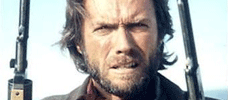
The Outlaw Josey Wales
1976 -
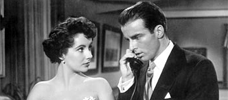
A Place in the Sun
1951 -
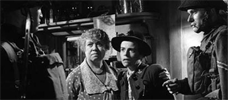
Went the Day Well?
1942 -
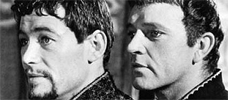
Becket
1964 -
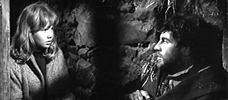
Whistle Down the Wind
1961 -
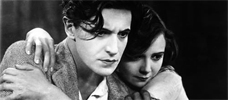
The Constant Nymph
1943 -
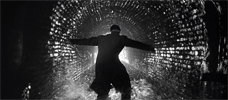
The Third Man
1949
We don’t do comments anymore, but you may contact us here or find us on Twitter or Facebook.



